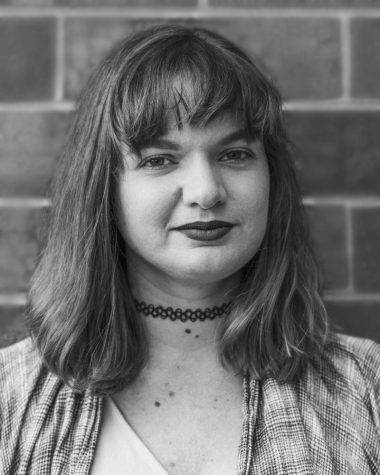Giamatti as Nijinsky: A Legend Worthy of the Role
Courtesy of James Minchin/SHOWTIME
Paul Giamatti, a reputable actor, participated by reading three pieces of Nijinsky’s.
October 28, 2016
Admittedly, ballet is a niche interest. Of all the respect that the title of ballerina garners — dancers spend years breaking their bodies into picture-perfect forms, capable of what for the rest of us are inhuman feats of grace and skill — few of us commit any time to watching ballet shows or learning about the style’s iconic figures. It’s a shame, for ballet holds tales as fascinating as any other art form. By far one of the most iconic in the history of the dance is that of Vaslav Nijinsky, the Russian-born ballerina that by the tender age of 18 had already become a world-renowned dancer. The course of his history is in fact rather tragic; he was born into a family of dancers, but his father left when Nijinsky was eight, and Nijinsky’s career was balanced, as dancers’ lives often were at the time, between ballet and being a very high-class consort.
Most of all, just before the World War I broke out, Nijinsky suffered a psychotic break, and became consumed by schizophrenia. In the six weeks before his wife had him committed for the first time to an asylum, Nijinsky wrote diaries. Pages upon pages of stream-of-consciousness thought were recorded during the lowest point of his pre-asylum days, giving a fascinating and enlightening look into his mind at the time.
On the night of Monday, Oct. 24, NYU’s Center for Ballet and the Arts hosted a reading of Nijinksky’s diaries, which was intended to run in tandem with the biographical performance of “Letter to a Man,” a theater piece featuring the acclaimed Mikhail Baryshnikov as Nijinsky. The esteemed actor Paul Giamatti read three selections from Nijinsky’s writing, and afterwards, four speakers held a panel discussion featuring Joan Acocella, a staff writer for the New Yorker and the editor of the first edition of Nijinsky’s diaries; Darryl Pinckney, a contributor to the New York Review of Books and prolific author; Larry Wolff, Silver Professor of History at NYU and Director of the NYU Center for European and Mediterranean Studies and Jennifer Homans, the evening’s host and the founder and director of the Center for Ballet and the Arts at NYU.
Giamatti’s reading was life-altering, to say the least. He was seated in a simple chair upon a platform in nondescript clothing and remained seated for the entirety of his reading. Even seated, though, his emotional and dynamic range was such a wide spectrum that if it could have been measured, it would have broken any scale applied to it. His sense of timing and appreciation for the effectiveness of pauses in speech were perfect. Moreover, he appeared to clearly understand exactly the pacing of a person undergoing a psychotic break. Portraying a schizophrenic has all too often become an insensitive form of character, debilitating to the actor’s career and the stigma surrounding the condition as a whole. Giamatti avoided this completely, instead appreciating the at once the nuance and wildness of the words on the page.
The panel afterwards, if not as entertaining, was just as educational. All of the speakers were clearly experts in the topic, and it was not the tedious sort of panel in which all the panelists simply agree with each other. Considerate debates were held on several aspects of Nijinsky, from his sexuality to what it would have been like to be him — what it would be like to be a reputedly silent man who was the gem of the Western European arts society, in demand from counts and choreographers alike. Even those unfamiliar with Nijinsky’s work would easily have been able to keep up, and if nothing else, it was a beautifully nuanced look at an iconic and often romanticized figure.
“Letter to a Man” will be performed at the Brooklyn Academy of Music’s Harvey Theater at 651 Fulton St. through Oct. 30.
Email Hailey Nuthals at [email protected].
























































































































































